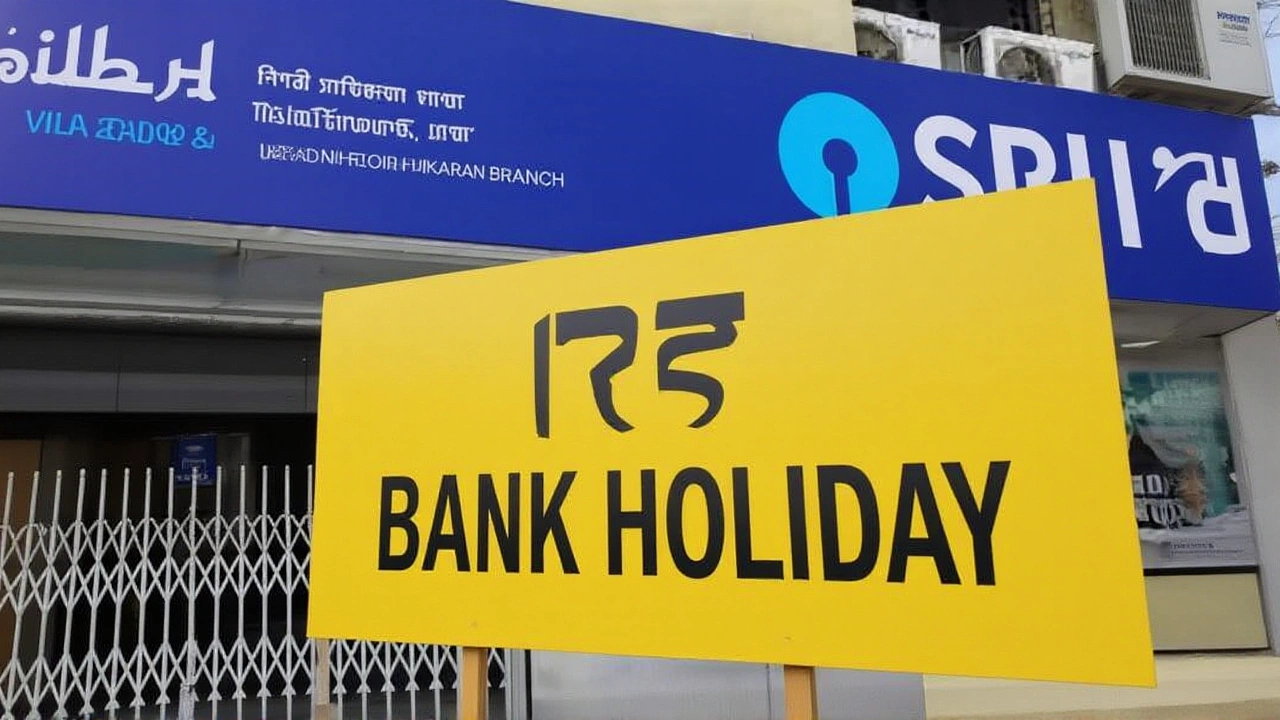On November 5, 2025, banks across most of India will shut down for Guru Nanak Jayanti, a major Sikh observance also recognized as Kartika Purnima in parts of the country. But here’s the twist: 13 cities — including Bengaluru, Chennai, and Ahmedabad — will stay open. Why? Because the Reserve Bank of India allows regional exceptions, and these cities have long operated under special dispensations for religious holidays. It’s not a glitch — it’s the system working as designed.
Why Some Cities Stay Open
The Reserve Bank of India doesn’t impose a one-size-fits-all holiday calendar. Instead, it lets state governments recommend local observances. In most states, Guru Nanak Jayanti on November 5 triggers full closures. But in 13 metropolitan hubs — Agartala, Ahmedabad, Bengaluru, Chennai, Gangtok, Guwahati, Imphal, Kochi, Panaji, Patna, Shillong, Thiruvananthapuram, and Vijayawada — banks remain open. The reason? These cities have significant commercial activity, large financial districts, and historically high volumes of non-resident transactions. Closing them entirely would disrupt critical services for businesses, exporters, and international remittances.Oddly enough, even within states, the rules vary. In Odisha and Telangana, the day is observed as Kartika Purnima, a Hindu lunar festival, and banks close. But in Karnataka and Tamil Nadu, despite being majority Hindu states, banks in those 13 cities stay open regardless of the religious label. It’s less about faith and more about economic pragmatism.
The Full November 2025 Holiday Calendar
Beyond November 5, the banking calendar follows predictable patterns. Every second and fourth Saturday of the month is a nationwide holiday — so November 8 and November 22 will see all branches closed. Sundays are always off: November 16 and November 23. These are non-negotiable under the Reserve Bank of India’s Master Circular on Working Hours of Banks.But the regional quirks don’t stop there. In Bihar, Diwali falls on November 1 — a Friday — and banks close. The next day, Chhath Puja on November 7, also triggers closures. Meanwhile, Manipur observes its harvest festival, Kut, on the same day. And in Lakshadweep, Guru Nanak Jayanti isn’t celebrated on the 5th — it’s moved to November 15, a Saturday, aligning with local traditions.
Punjab’s Unique Observance
In Punjab, the month ends with another solemn date: Martyrdom Day of Guru Teg Bahadur Ji on November 25, a Tuesday. This is a state holiday, and all banks in Punjab will close. It’s a reminder that while national holidays create rhythm, local histories shape the real calendar.Even Jharkhand has its own entry: Jharkhand Formation Day on November 15. And while it’s a Saturday, the state government’s notification still makes it a bank holiday — a small but telling sign of how political identity can influence financial infrastructure.

What This Means for You
If you live in one of the 13 cities, you can still access banking services on November 5 — ATMs, mobile apps, and net banking remain fully operational. But if you’re planning to visit a branch for a loan application, cash deposit, or document submission, you’ll need to wait. In rural areas or smaller towns, closures are total. That means rural businesses relying on interbank transfers or cheque clearing will face delays.For digital-first users, this matters less. But for millions still dependent on physical banking — small shopkeepers, farmers, elderly customers — these closures ripple through daily life. The RBI’s approach reflects a deep understanding: India isn’t one country in a single language. It’s hundreds of communities, each with their own rhythms.
Interestingly, this system has been in place for decades. Even during the 1990s banking reforms, the RBI resisted uniform holidays. Why? Because forcing a Hindu-majority state to stay open on Eid, or a Sikh-majority state to stay open on Diwali, would have caused unrest. The compromise? Let local governments decide. It’s messy. But it works.
What’s Next?
As digital banking grows, pressure will mount to simplify the calendar. But for now, the RBI shows no signs of changing course. The next big test? If a major city like Mumbai or Delhi demands to be added to the 13, will the RBI agree? For now, the status quo holds — a patchwork of holidays that mirrors India’s soul: diverse, stubborn, and beautifully complicated.Frequently Asked Questions
Why are banks open in 13 cities on Guru Nanak Jayanti?
These 13 cities — including Bengaluru, Chennai, and Ahmedabad — are designated financial hubs with high volumes of commercial and international transactions. The Reserve Bank of India allows them to remain open to prevent disruptions in trade, remittances, and digital banking operations, even during religious holidays. The policy dates back to the 1980s and is reviewed annually.
Does this mean Guru Nanak Jayanti isn’t a national holiday?
It’s recognized as a national holiday by the central government, but bank closures are governed by the RBI’s regional discretion. While government offices and schools may close nationwide, banks follow state-specific notifications. So yes, it’s national in status — but not uniformly observed in banking.
What about online banking and ATMs on November 5?
Online banking, mobile apps, and ATMs operate normally on all bank holidays, including November 5. The closures only affect physical branches. Customers can still transfer funds, pay bills, check balances, and withdraw cash — but if you need to speak to a teller or submit documents, you’ll have to wait until the next business day.
How are holidays like Chhath Puja and Kut decided for closure?
State governments submit lists of local festivals to the RBI by June each year. The RBI then issues a consolidated holiday list. Chhath Puja in Bihar and Kut in Manipur were approved because they’re recognized as public holidays by state legislatures. Even minor festivals get included if they’re officially gazetted — showing how decentralized India’s administrative system really is.
Why does Lakshadweep celebrate Guru Nanak Jayanti on November 15?
Lakshadweep’s Muslim-majority population traditionally observes Sikh festivals on different dates to avoid conflicting with local observances. The state government formally requested the shift to November 15, a Saturday, so it wouldn’t disrupt workdays. The RBI approved it in 2019, setting a precedent for island territories to adapt national holidays to local calendars.
Will digital banking eventually eliminate these regional holidays?
Unlikely. While digital transactions reduce the need for branch visits, physical banking remains vital for 60% of India’s adult population, especially in rural areas. More importantly, holidays aren’t just about operations — they’re cultural acknowledgments. The RBI knows removing them could spark backlash. The system may evolve, but it won’t be homogenized.
